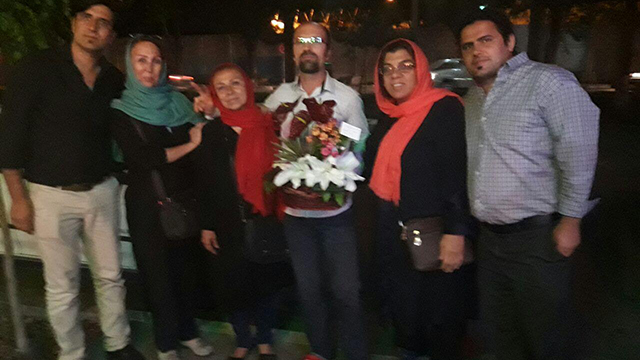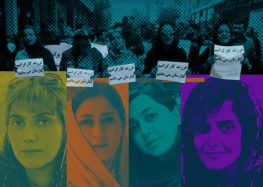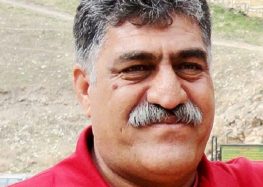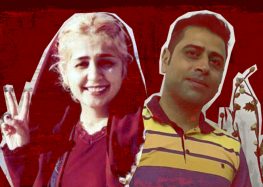Labor Activist Freed From Rajaee Shahr Prison After Serving Seven Years Behind Bars

After serving seven years, labor activist As’ad (Behnam) Ebrahimzadeh was released from Rajaee Shahr Prison in Karaj, east of Tehran, on May 1, 2017—a year after his scheduled discharge.
“The prison authorities told me that two of my sentences had been combined and I would be freed after paying a fine,” said Ebrahimzadeh in an interview with the Center for Human Rights in Iran (CHRI) after his release from prison.
“When they gave me my case file, I noticed that officially I should have been released a year ago, but they concealed the date from me,” he added.
A member of the Society for the Protection of Child and Street Workers in Tehran, Ebrahimzadeh, 31, has been incarcerated since his arrest at a Labor Day rally on May 1, 2010.
Initially he was held in solitary confinement for four months in Evin Prison’s Ward 209, controlled by the Intelligence Ministry, and interrogated without access to a lawyer. He was also denied contact with his family.
In December 2000, without the presence of a lawyer, he was sentenced to 20 years in prison by Branch 15 of the Revolutionary Court presided by Judge Abolqasem Salavati for “collaborating” with the outlawed Mojahedin-e Khalgh (MEK) and “assembly and collusion against national security.”
His sentence was reduced to five years in prison after the Appeals Court dismissed his alleged ties to the MEK.
The labor activist was beaten, injured and sent to solitary confinement for 15 days as punishment for allegedly resisting Evin Prison guards during a violent search of Ward 305 on “Black Thursday,” April 17, 2014.
In June 2015, he was again transferred to solitary confinement in Ward 209 and charged with talking to foreign media from inside prison and writing a letter about his situation in August 2014 to the UN’s special representative on the human rights situation in Iran.
In December 2014, Judge Mashallah Ahmadzadeh of Branch 15 of the Revolutionary Court tried Ebrahimzadeh without the presence of a lawyer and sentenced him to nine years and four months in prison for “propaganda against the state,” “assembly and collusion against national security,” “using satellite equipment” and “keeping a deck of cards.”
The Appeals Court reduced the sentence to seven years, 10 months and 15 days in prison and fined him 450,000 tomans ($139 USD).
Under Article 134 of Iran’s Islamic Penal Code “only the most severe punishment shall be executed” in cases with multiple convictions.
The labor activist’s release was made possible by combining his two convictions and allowing him to serve only the maximum prison term, including time served as of May 2010.






